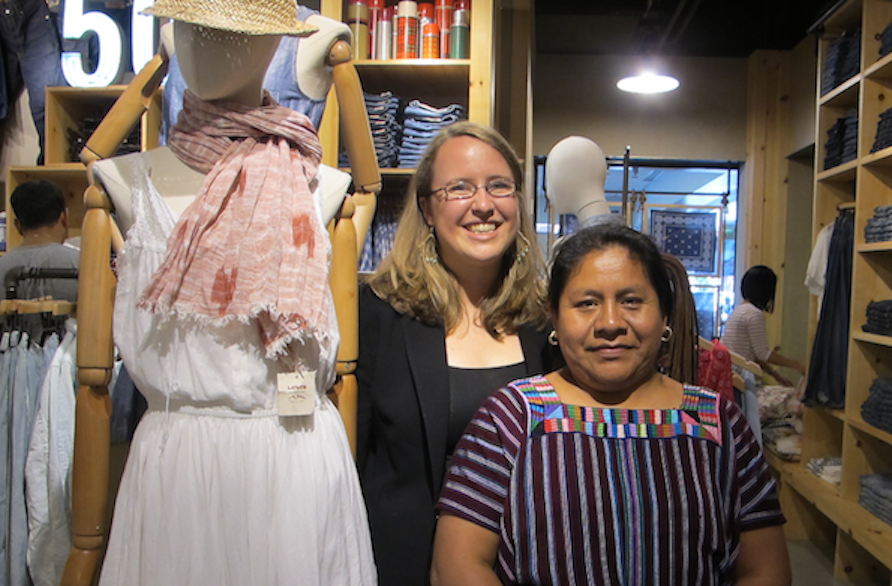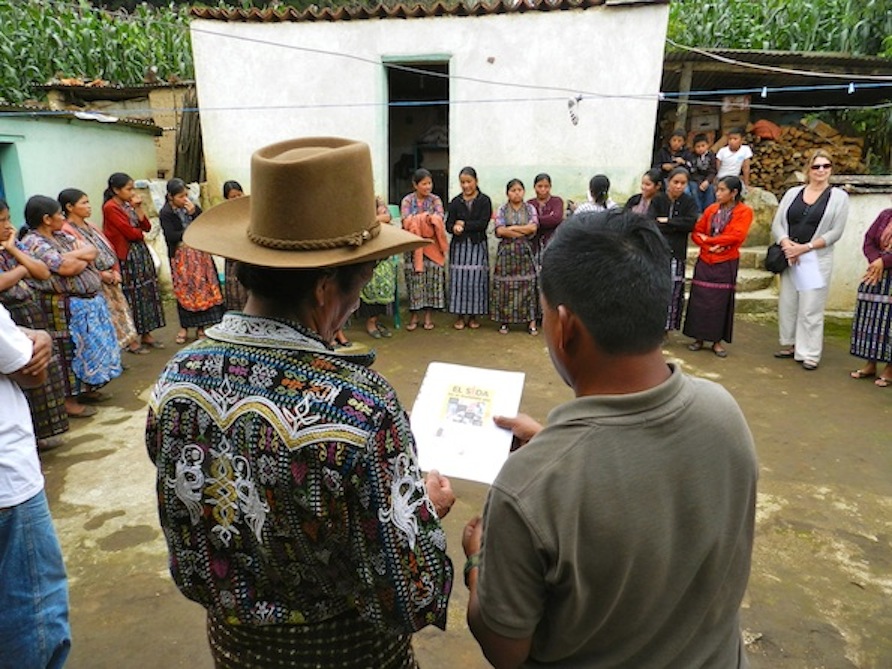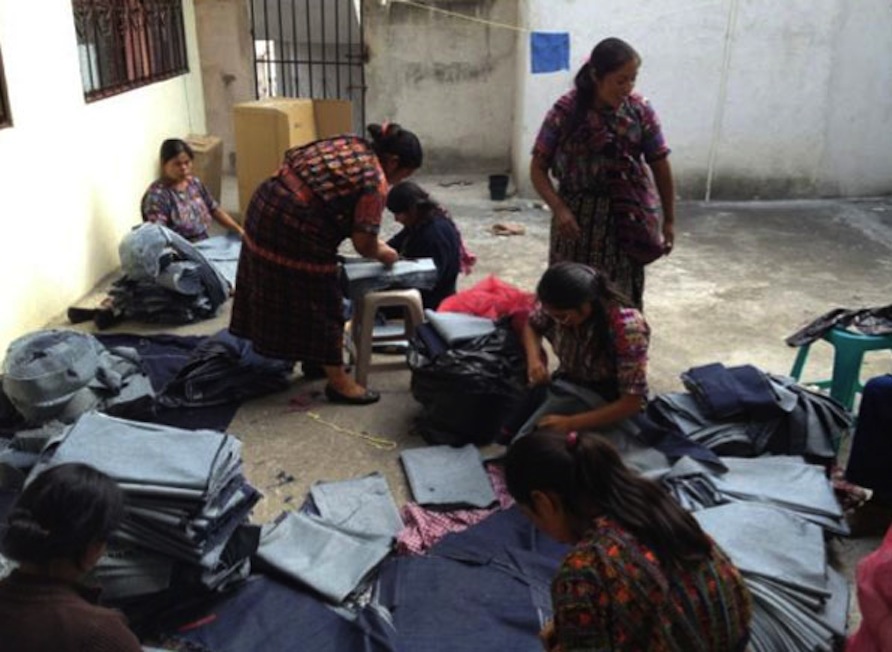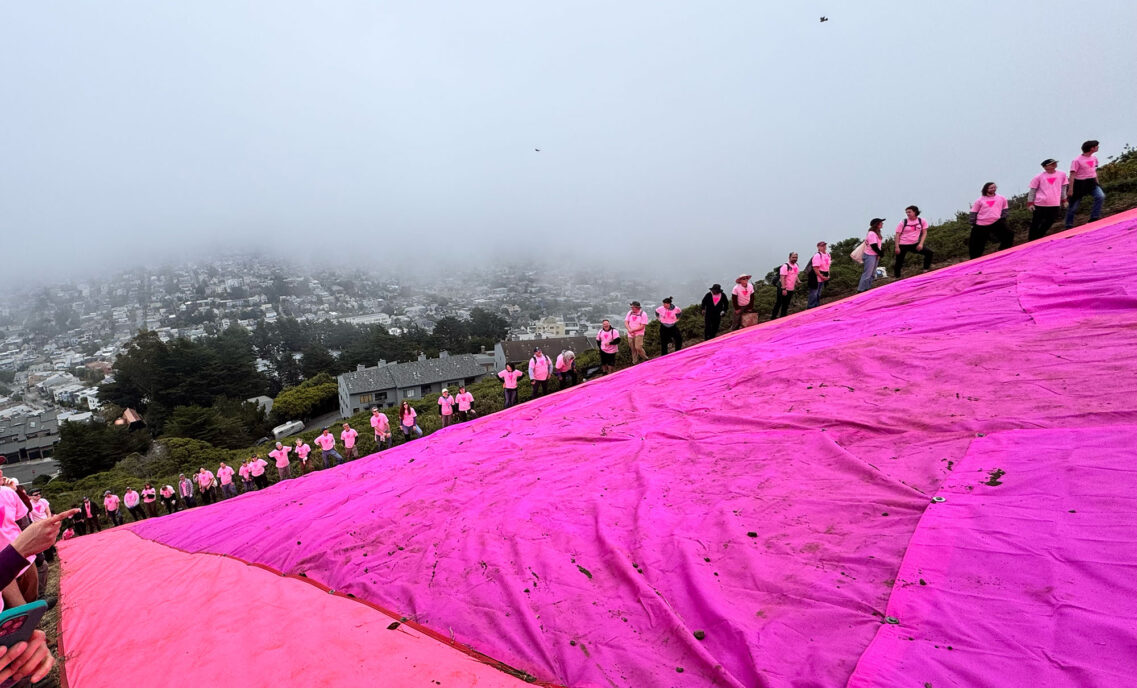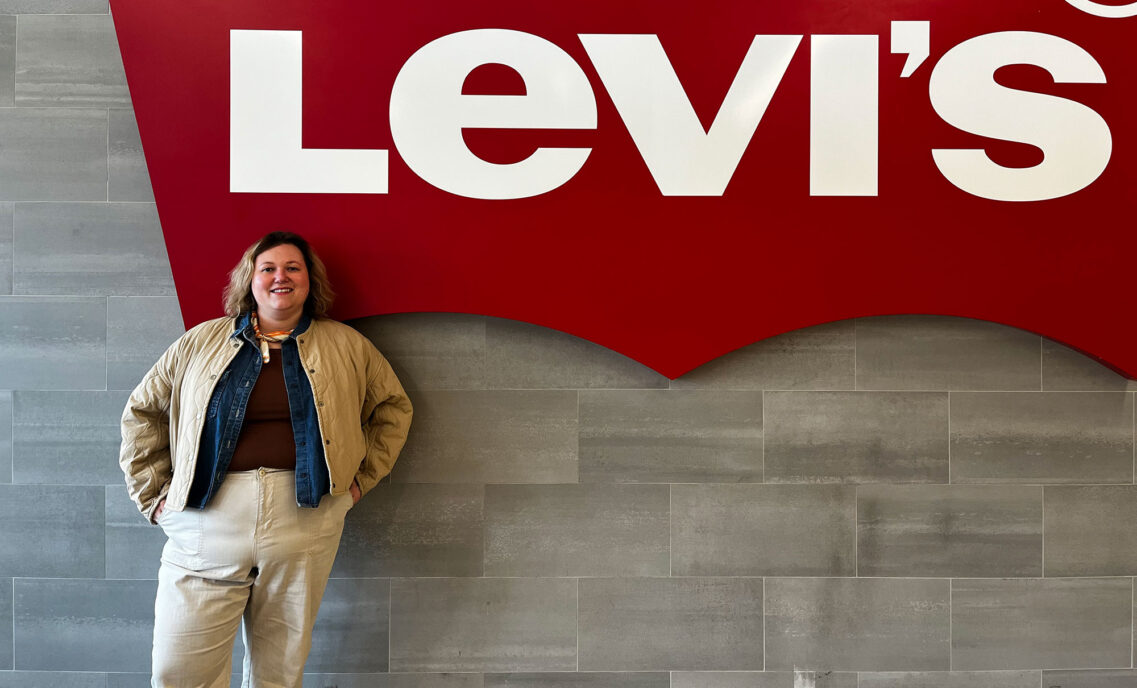It takes one motorboat ride and a half-hour walk through the Guatemala highlands to get to my job every morning, but I wouldn’t trade it for anything in the world.
My name is Delia Mendoza. I work for Mercado Global, a cutting-edge nonprofit, Fair Trade organization that connects indigenous Guatemalan women like me to sales opportunities in the United States.
With support from the Levi Strauss Foundation, Mercado helps women artisans establish cooperatives that provide jobs, business training, and incentives to save money for long-term goals. You might have even seen some of scarves at a Levi’s® store or online at levi.com. Since 2007, Levi’s® has partnered with Mercado Global to bring our hand-crafted scarf, bag and belt collections to customers across the United States.
I grew up in San Juan La Laguna in Guatemala. My father, a farmer who only spoke Tz’utuhil (one of the indigenous languages in Guatemala), strongly believed that a good education would help me improve my life. He sacrificed a lot to make sure I finished high school and encouraged me to go to college.
But a lot of people in Guatemala don’t have access to these opportunities.
Most children go to school for a year or two before having to drop out and start working. Among the women that work with Mercado, many have lived in extreme poverty and 72 percent are illiterate. It’s a very tough reality, but it can be improved by helping them gain access to jobs, education, financial services and health services.
At Mercado Global,I lead our production and artisan training teams, and I supervise our educational and community development programs in the regions where we work. This year, I worked with the Levi Strauss Foundation as we partnered to support four hundred rural women artisans to produce 25,000 conference bags for the 2012 International HIV/AIDS Conference, the most important HIV/AIDS conference in the world, to be held this July in Washington, D.C.
For the Levi Strauss Foundation and Mercado Global, raising awareness about HIV/AIDS among these women and their husbands became as important as the business opportunity itself.
A lot of them were at first resistant to our trainings—they felt it didn’t concern them, or had mistaken ideas about the virus and how it’s transmitted. But as soon as they started hearing the facts they realized HIV/AIDS could affect them as well: two out of three people living with HIV/AIDS do not know they are infected, and indigenous populations are among the most affected populations in Guatemala.
Through these trainings, we have helped our community separate facts from myths surrounding HIV/AIDS. I’m very proud of this, because the knowledge will be passed on to our neighbors and friends, helping everyone.
Mercado Global has taught me that the help we provide to our community goes beyond direct resources. When people find someone who believes in them, it raises their self-esteem and their ideas of what’s possible. As theLevi Strauss Foundation says, low-income people, when given the right incentives and opportunities, can and do plan for better futures.
Learn more about Mercado Global in the video that follows the pictures below.



